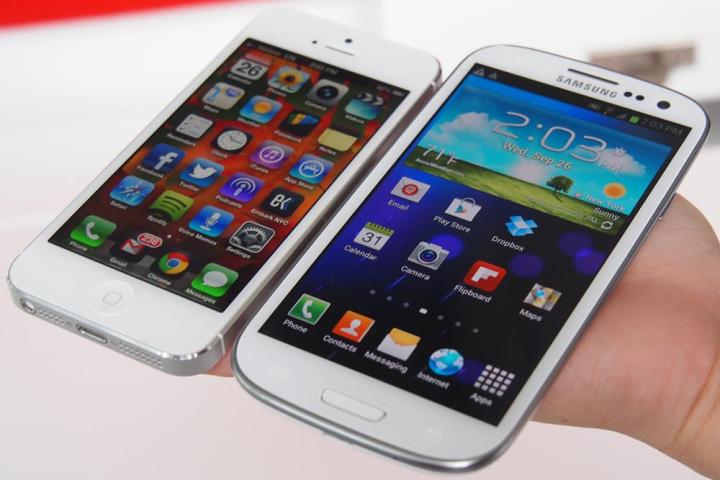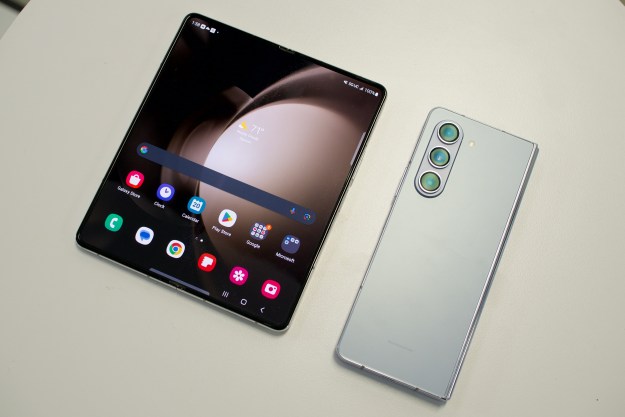
With the selection of the eight-person jury taken care of on Monday, the latest Apple-Samsung patent trial kicked off for real in a San Jose, California court yesterday, with Apple’s senior vice president of marketing, Phil Schiller, taking the stand as the tech company’s first witness.
Apple is accusing Samsung of infringing five of its patents, each relating to software features found on its iOS mobile operating system. It’s seeking damages of $2 billion from the Korean electronics company, as well as a sales ban on several Samsung devices including the Galaxy S3 smartphone. A verdict is expected toward the end of the month.

According to reports, Schiller pretty much stuck to the script in his testimony, going over the same kind of points he made to a jury back in November during a retrial in another patent case with Samsung.
Using various graphs and charts sporting stats that won’t have looked out of place in one of Apple’s high-profile product launches, Schiller described the success and popularity of the company’s iPhone.
When asked about how he felt when he first set eyes on Samsung’s original Galaxy smartphone, Schiller replied, “It looked so much like an attempt to copy the iPhone.”
He added that Samsung’s alleged copying had “caused people to question some of the innovations we created,” adding, “I think it has confused people as to which products are creating this experience.”
The iPhone maker says it believes that in the US Samsung sold more than 37 million smartphones that violated its patents, and that 10 percent of those are, for Apple, lost sales.
Prior to Schiller’s testimony, opening arguments were laid out by both sides. While Apple pressed home the idea that Samsung had infringed a number of its patents by incorporating similar features into its own products, lawyers for the Korean tech firm argued that the Cupertino company’s damage claims are hugely exaggerated, while the patents relate to relatively minor software features.
The patents at the center of the court case include a “system and method for performing an action on a structure in computer-generated data,” where addresses and times are shown as links within messages, and “unlocking a device by performing gestures on an unlock image,” otherwise known as the ‘slide to unlock’ feature.
Editors' Recommendations
- The OnePlus 12 has one big advantage over Samsung and Apple
- Best Labor Day Smartwatch Deals 2020: Apple and Samsung
- Apple Watch Series 5, Samsung Galaxy Active 2 on sale in time for Father’s Day
- The Best Labor Day smartwatch deals: Fitbit, Samsung, and Apple Watch discounts

